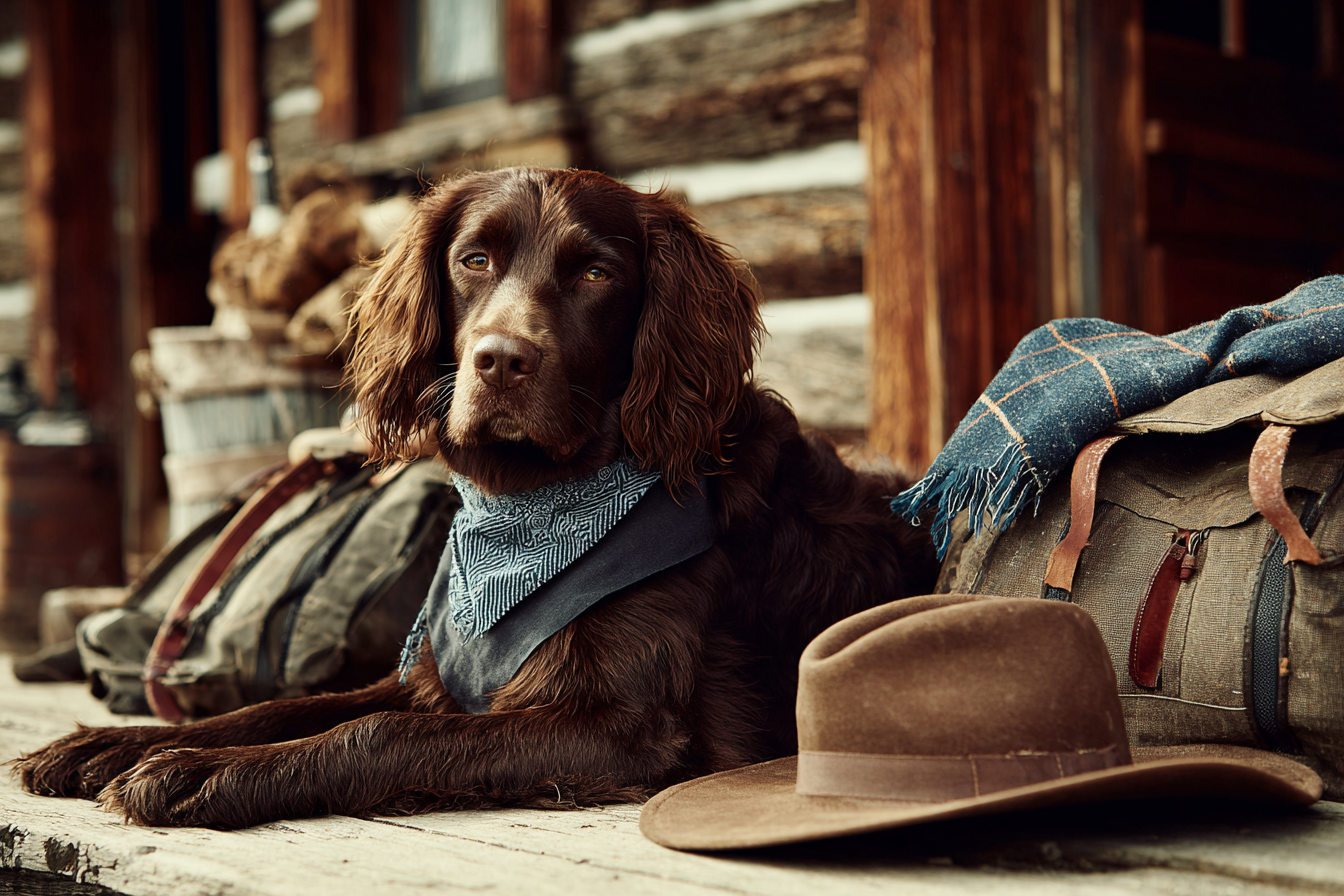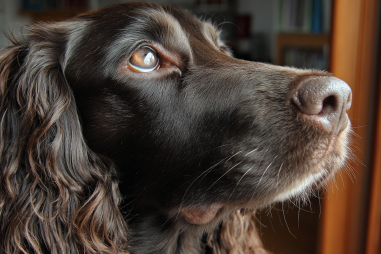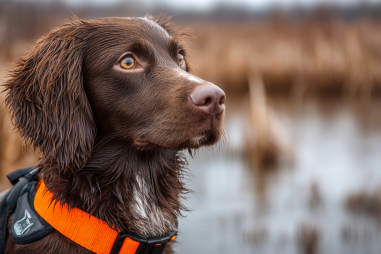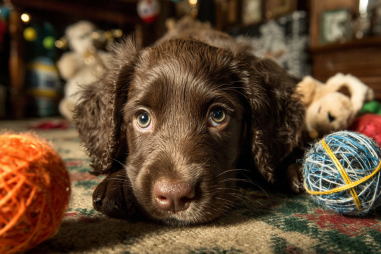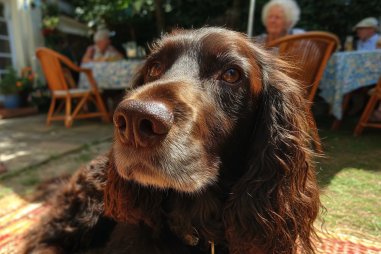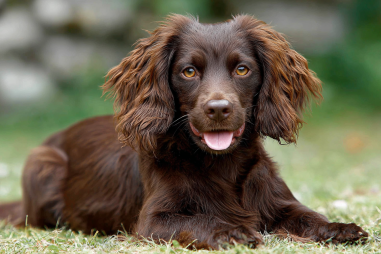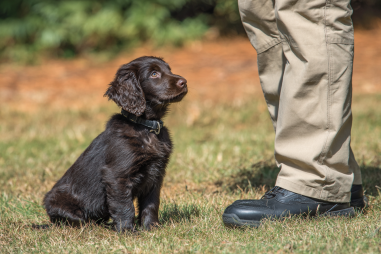The Boykin Spaniel is a remarkable breed with deep roots in the hunting culture of the American South. Known for its friendly disposition, intelligence, and impressive versatility in the field, this breed has carved out a unique place among sporting dogs. Understanding the Boykin Spaniel’s history and origin not only sheds light on how its distinctive traits evolved but also highlights why it remains a popular companion and working dog today.
Origins of the Boykin Spaniel
The story of the Boykin Spaniel begins in the early 1900s in South Carolina, particularly around the small town of Boykin, which the breed is named after. The foundation of the breed traces back to a single hunting dog owned by Whit Boykin, a local businessman and avid hunter. This dog was a small, liver-colored spaniel with a charming personality and a strong hunting instinct, traits that would later define the entire breed.
Although the exact lineage is not conclusively documented, it is believed that the Boykin Spaniel is a cross of several breeds, including the Chesapeake Bay Retriever, Springer Spaniel, and Cocker Spaniel. Some also speculate there may be influence from the Welsh Springer Spaniel as well. This unique mix aimed to create a dog perfectly suited for hunting wild turkeys and waterfowl in the swampy, humid environment of South Carolina.
Whit Boykin’s original dog was known for being particularly adept at navigating the challenging terrain, swimming through swampy waters, and tracking game. When he decided to breed this dog, other local hunters and breeders saw promise in the new mix, which led to purposeful breeding programs to refine and stabilize the breed’s appearance and working capabilities.
Role in Hunting and Field Work
The Boykin Spaniel’s early purpose was firmly tied to hunting, particularly wild turkeys and waterfowl. What set the breed apart was its ability to combine agility, endurance, and a keen hunting nose with a doggy enthusiasm that made it both reliable in the field and a pleasure for hunters to work alongside.
The breed was especially prized for:
- Versatility: Boykin Spaniels are skilled in retrieving and flushing game, making them multi-talented hunting partners.
- Swamp Adaptability: Their compact size and dense, water-resistant coat allow them to hunt effectively in wetlands, swamps, and flooded timber areas.
- Strong Swimming Ability: Thanks to their background, Boykins excel at water retrieval and navigating through aquatic environments without tiring quickly.
- Great Endurance: They tire less quickly than many other spaniels, which is helpful for long hunting days under tough southern weather conditions.
Because of their hunting aptitude, Boykin Spaniels quickly gained popularity among game hunters in the region. Their friendly nature and trainability also made them known as excellent family dogs, further broadening their appeal.
Breed Recognition and Development
The growth of the Boykin Spaniel as a formally recognized breed took some time. The Boykin Spaniel Society was founded in 1977 with the aim of preserving the breed’s unique qualities while promoting responsible breeding standards. One of their early challenges was to manage and document the breed’s lineage to establish a clear pedigree and prevent dilution of its core characteristics.
In 1985, the American Kennel Club (AKC) granted the Boykin Spaniel recognition as a purebred breed, although it was initially grouped in the American Working Dog category before moving into the Sporting Group. This was a major milestone, giving breeders and owners a path to participate in conformation shows and helping to raise the breed’s profile nationally and internationally.
Over the decades, breeders have worked carefully to enhance the Boykin’s hunting instincts while also maintaining its sociable, easygoing temperament. Health screenings and improvements have been integrated to decrease hereditary problems, making modern Boykin Spaniels healthier and more capable than ever.
Physical and Behavioral Traits Influenced by History
The Boykin Spaniel’s physical and behavioral traits are a direct reflection of its hunting heritage and the environment it was bred to work in.
Physical Traits:
- Size and Build: Medium-sized, sturdy and muscular, with males typically weighing 30-40 pounds and females slightly less. Their builds allow for a balance of strength and agility.
- Coat: Their signature coat is dense, medium-length, and water-resistant, usually coming in solid liver or dark brown shades that help them blend into marshy environments.
- Eyes and Expression: Expressive amber or brown eyes set a friendly, intelligent expression that echoes the breed’s approachable personality.
Behavioral Traits:
- Intelligence and Trainability: Boykins are smart and quick to learn, responding well to positive, consistent training rooted in bonding rather than force.
- Energetic and Enthusiastic: A dog bred for hunting has energy to spare, exhibiting a playful spirit even when off duty.
- Loyal and Social: Known for their loyal nature, Boykins thrive on companionship and often form strong attachments to their families.
- Strong Hunting Drive: Their history as working dogs means they retain a strong prey drive and excel at scent work and retrieval games.
Boykin Spaniel Today
Today, the Boykin Spaniel continues to hold a special place both as a beloved family pet and as a working hunting dog. Their popularity has grown beyond the borders of South Carolina, with enthusiasts appreciating the breed’s versatility and temperament.
In modern homes, Boykins enjoy active lifestyles that include obedience, agility, and field trials. They are often recommended for families who lead outdoor lives, thanks to their need for daily exercise and mental stimulation. Moreover, shelters and rescue organizations closely monitor Boykin Spaniels, ensuring that if owners can no longer care for them, these dogs find new, loving homes.
Equally important is the role the Boykin Spaniel plays in conservation and hunting communities. Many hunters rely on the breed’s expert flushing and retrieving abilities during waterfowl and turkey seasons. Additionally, Boykins are increasingly popular in search and rescue work, thanks to their keen noses and trainability.
A Legacy of a True American Sporting Dog
The Boykin Spaniel is more than just a pet or hunting companion; it embodies a unique piece of Southern American heritage. From the swamps of South Carolina to homes and hunting fields across the country, their story is one of hard work, loyalty, and friendship. Whether you’re drawn to the breed for its history, personality, or versatility, the Boykin Spaniel offers a wonderful combination of charm and skill rooted deeply in its compelling origin story.

